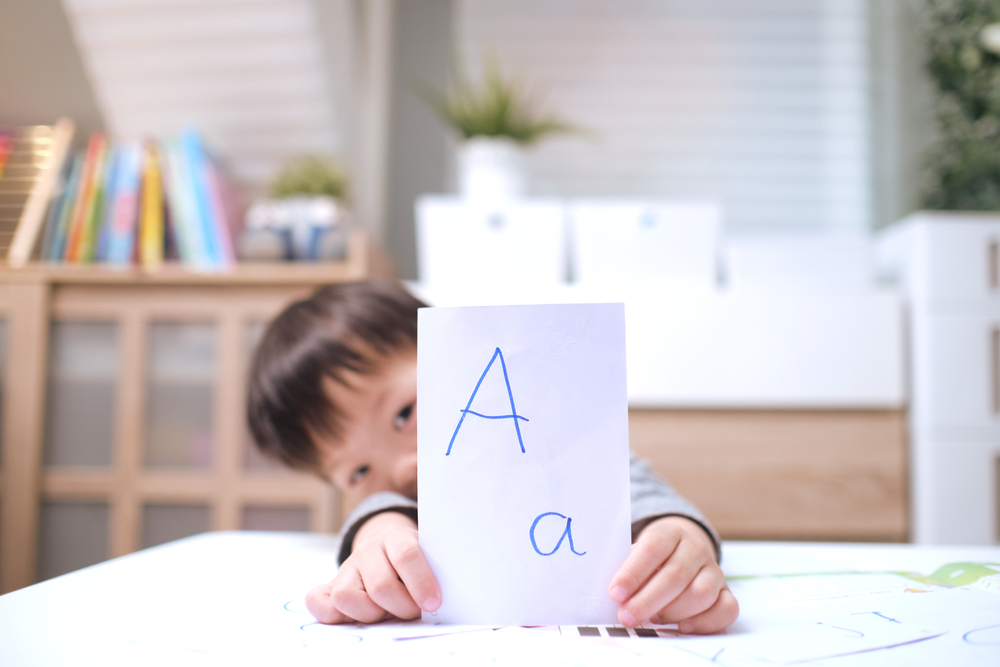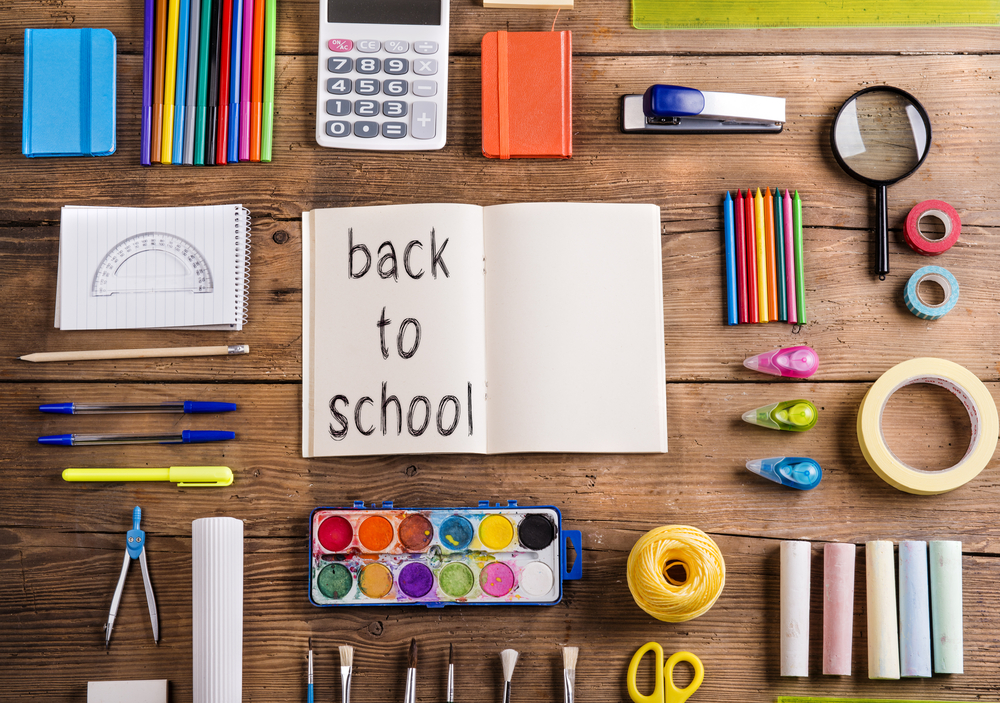Sequencing Skills Easy Worksheets for Ages 3-4
7 filtered results
-
From - To
Enhance your child's early learning with our Sequencing Skills Easy Worksheets designed specifically for ages 3-4. These engaging worksheets help young learners understand the importance of order and sequence in everyday activities. With colorful illustrations and simple activities, your child will develop critical thinking skills while having fun! Our printable resources cover a range of topics, from everyday routines to story sequencing, fostering creativity and comprehension. Perfect for homeschool or classroom use, these worksheets promote cognitive development and help set the foundation for future learning. Explore our collection today and watch your child's confidence soar as they master sequencing skills!
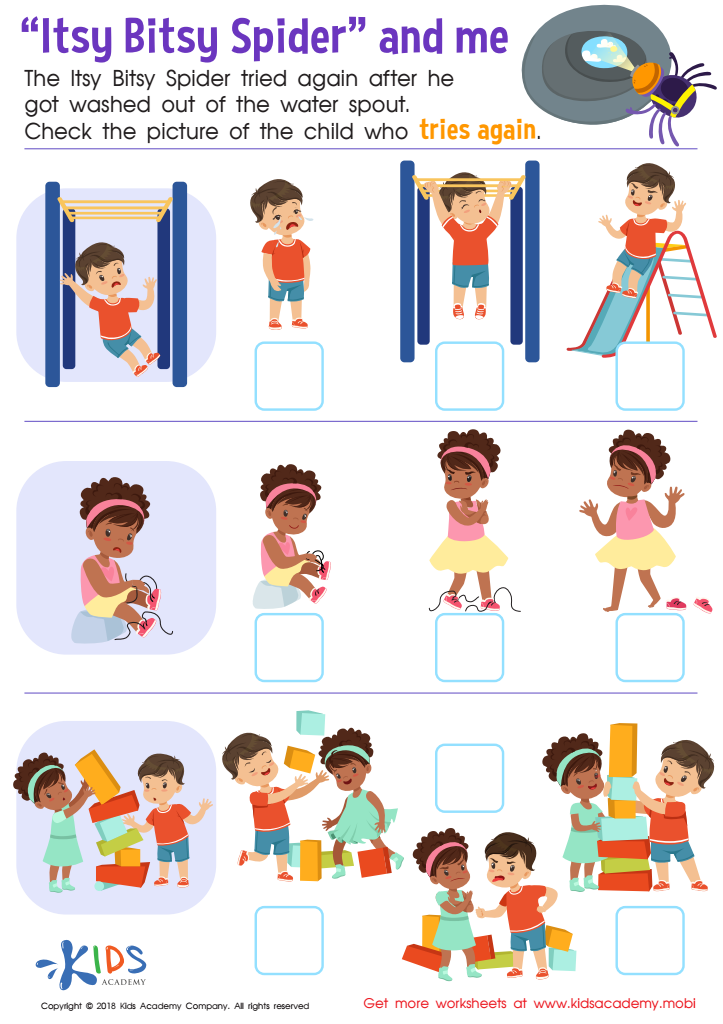

Itsy Bitsy Spider and Me Worksheet
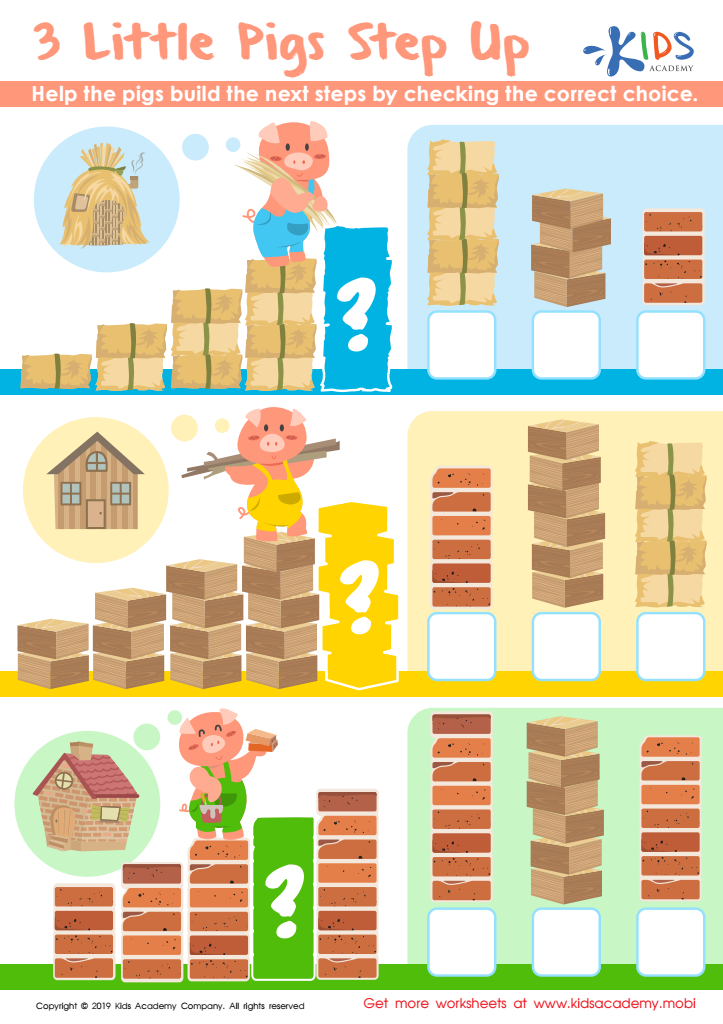

3 Little Pigs Step Up Worksheet
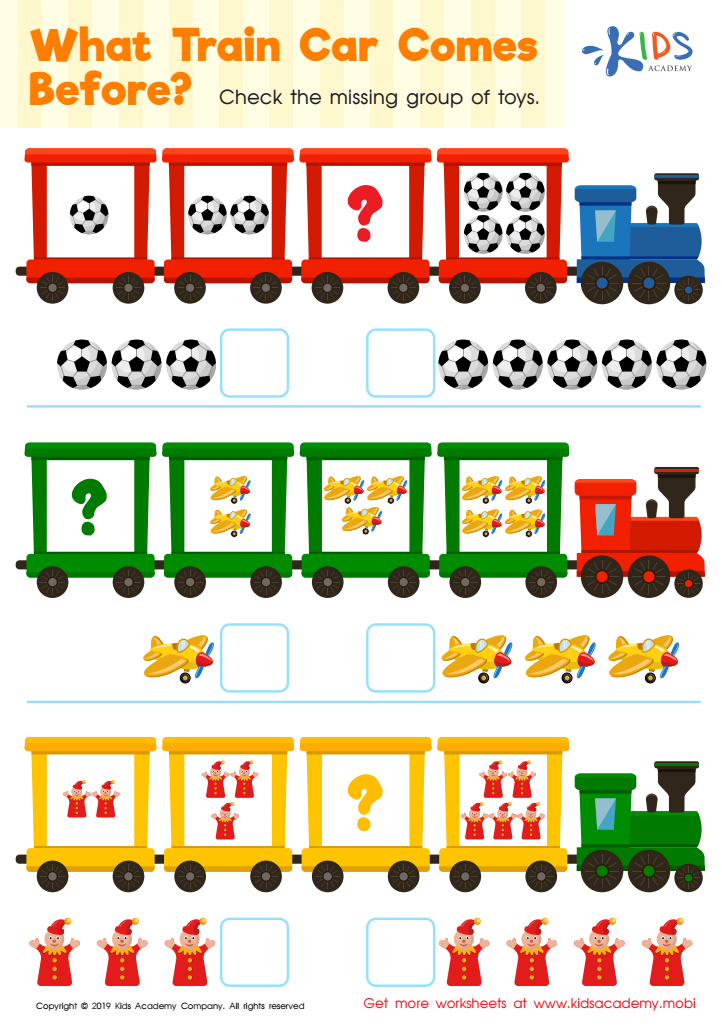

What Train Car Comes Before? Worksheet
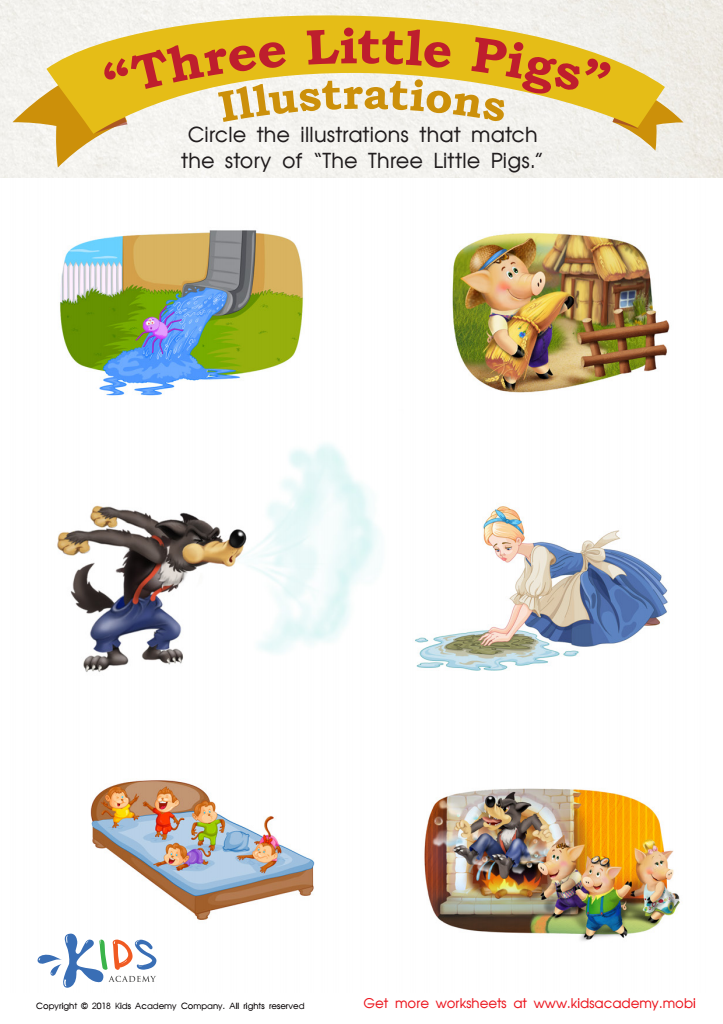

Three Little Pigs: Illustrations Worksheet
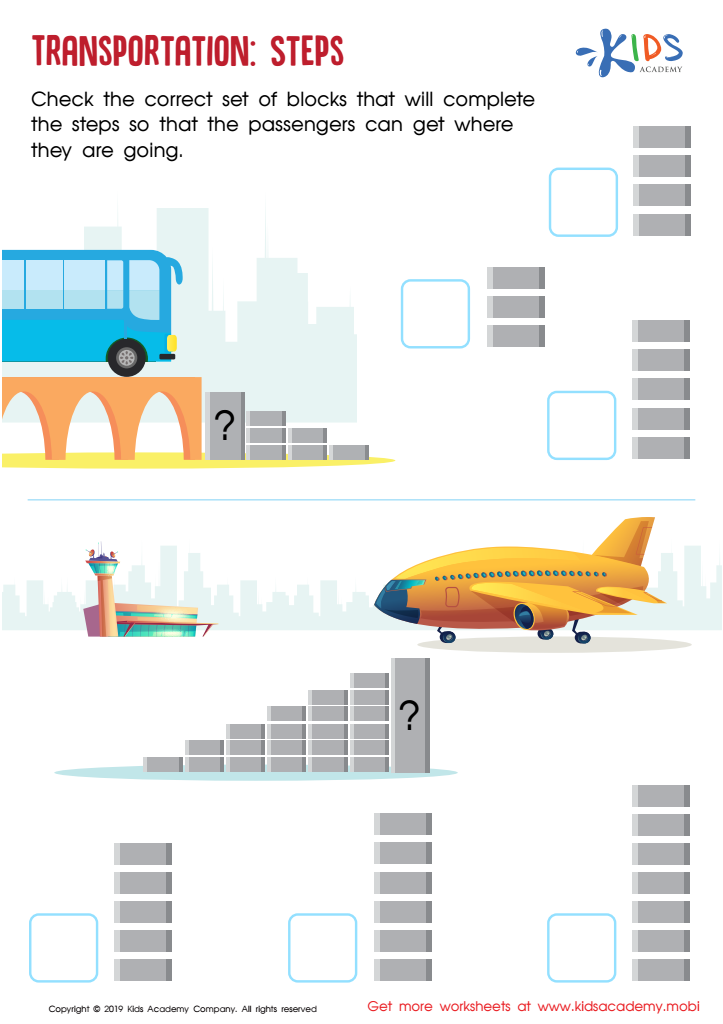

Transportation: Steps Worksheet
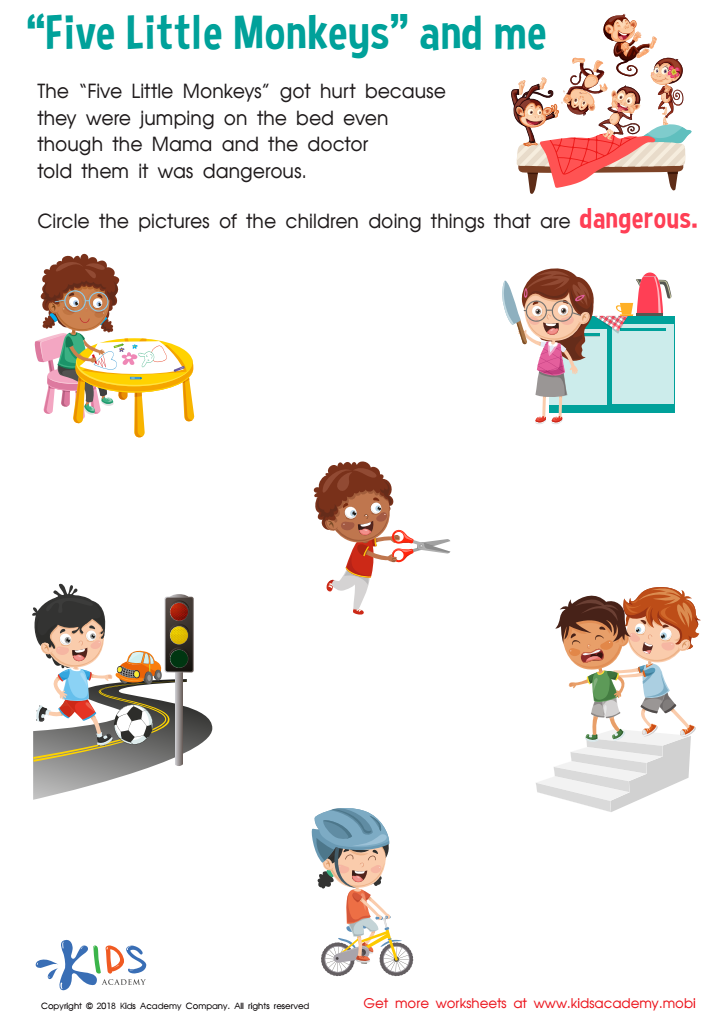

Five Little Monkeys and Me Worksheet
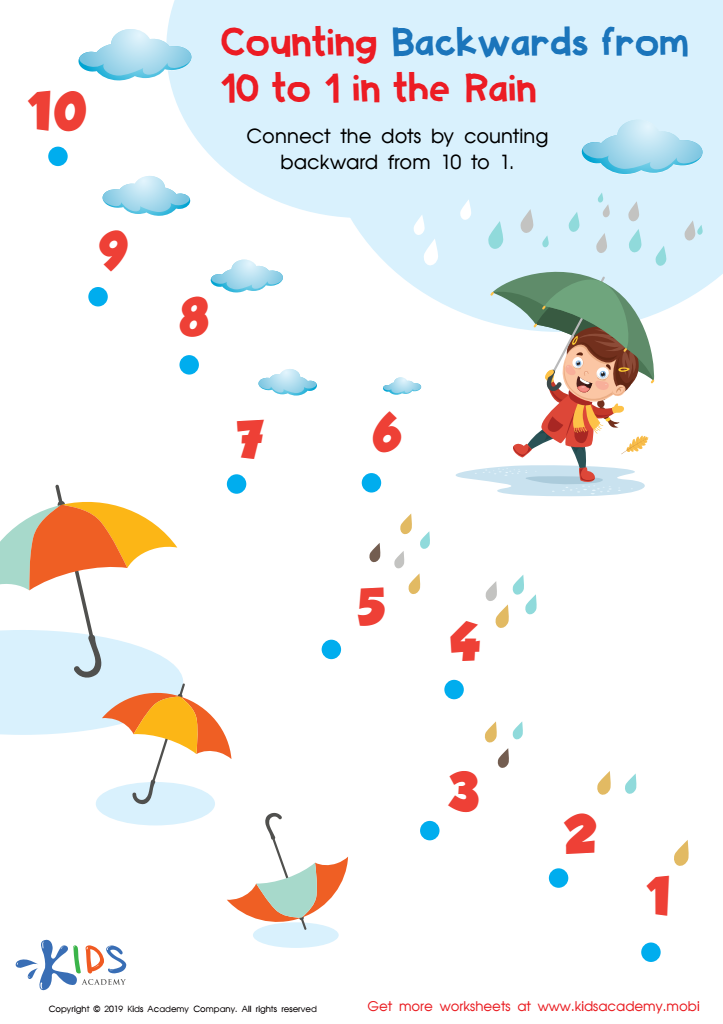

Counting Backwards from 10 to 1 in the Rain Worksheet
Sequencing skills are crucial for children aged 3-4 as they lay the foundation for critical thinking and problem-solving abilities. During this developmental stage, children are beginning to understand the concepts of order and organization, which are essential for making sense of their experiences and the world around them. Parents and teachers should prioritize these skills because they enhance a child's ability to follow directions, comprehend stories, and carry out multi-step tasks—abilities that are vital for academic success and daily life.
Developing sequencing skills also encourages cognitive growth, language development, and literacy. By engaging children in activities like storytelling, where they recount events in sequence, or puzzles that require arranging steps, adults can help foster a sense of time, logic, and cause-and-effect reasoning. These activities not only fuel creativity and imagination but also strengthen memory retention and focus.
Additionally, teaching sequencing can boost a child’s confidence. Successfully completing sequential tasks provides a sense of accomplishment and nurturing a positive attitude towards learning. In summary, investing time in developing sequencing skills at this young age prepares children for future learning and nurtures essential life skills that will benefit them long after they have left preschool.
 Assign to My Students
Assign to My Students





